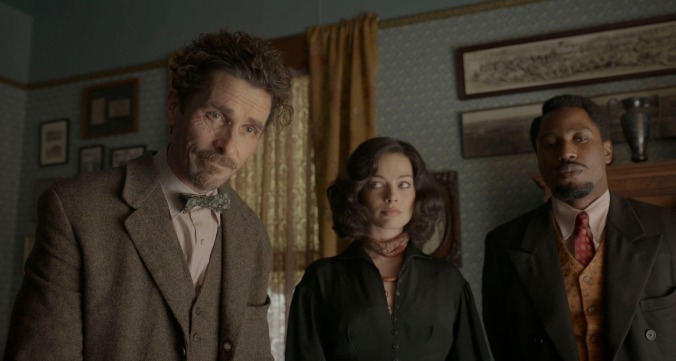David O. Russell's shambolic Amsterdam cranks up the star power but still falls short
Christian Bale, Margot Robbie, and John David Washington, among others, do their best to make sense out of an overly ambitious political potboiler

Amsterdam, David O. Russell’s 1930s-set caper film, zooms along unexpected narrative curves with a tremendous self-confidence it mistakes for grace. In actuality, it’s more of a shamble, like a sloppy guy at a bar telling a farfetched tale signifying not-too-much, but it certainly seems important, to the teller anyway. This does not mean the movie is not worth watching—indeed, much of it is rather funny—but like a return from the pub when a loved one asks if they missed anything, you can say, “Oh, it’s always fun to see the gang, but you didn’t miss much.”
The leader of this film’s gang is Christian Bale, working for the third time with Russell after American Hustle (a better film) and The Fighter (a better film still). Here he plays Burt Berendsen, a kind, doofus Doctor Feelgood who serves up painkillers to fellow World War I veterans. He wears a glass eye, has scars on his face, and (probably due to the frequent ingestion of his own wares) is seen making loopy faces, which Russell and cinematographer Emmanuel Lubezki are eager to shoot in close-up with long lenses, ramping up the cartoon nature of all of it.
His best buddy is a lawyer, Harold Woodsman, played by John David Washington. When Burt was the only soldier during WWI who would take the post leading an all-black division, the two of them forged an unbreakable bond. (Burt’s wife, a very amusing blue-blood Andrea Riseborough, and her father, Star Trek: Deep Space Nine’s Casey Biggs, sent him there, kinda-sorta hoping he’d get killed.)
Both men were wounded in the trenches, and as they convalesced in a French hospital they met an American nurse, Valerie, played by Margot Robbie brimming with joie de vivre and an unusual artist’s eye that teaches our boys how to truly embrace life. (She’s also incredibly connected to international spies—Mike Meyers and Michael Shannon, particularly—which no one questions.) The three quit for Amsterdam; Burt becomes a beloved third wheel to Harold and Valerie, whose love could never exist outside the bubble of bohemian interwar Western Europe. “Amsterdam” is a fondly remembered state of mind.
 Keep scrolling for more great stories.
Keep scrolling for more great stories.
